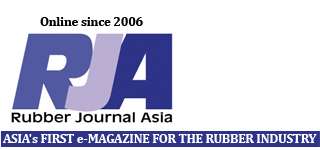National Skill Development Corporation (NSDC) and the All India Rubber Industries Association (AIRIA) will establish a rubber skill development centre for the rubber industry. The centre is expected to start the pilot project in six to eight institutes by September this year, according to AIRIA officials.
Vinod Simon, president of AIRIA said, “A company under the name Rubber Skill Development Centre (RSDC) has been formed and the office will be ready by July-end.” While in the long-term it plans around 150 institutes across the country to be affiliated with RSDC to develop skills for the industry, the company is in the process of identifying six to eight institutes to start the project on a trial basis.
It expects 400 to 500 students to be trained in the pilot stage. It envisions training 700,000 people to be industry-ready in the next 10 years, while 300,000 people who are already working in various positions in the industry would be re-skilled. At present, around 500,000 people are directly employed in the industry. The rubber industry currently has around 4,500 players, of which the large-scale tyre manufacturers are around 60. Around 400 companies are in the medium-scale, catering rubber-based auto components to the automobile industry, while the rest are predominantly tiny and small-scale companies.
The company has also options to invest in the institutes, in case of requirement. While the NSDC would impart Rs 5 crore to RSDC for the project, both AIRIA and the Automotive Tyre Manufacturers’ Association (ATMA) each has 10% equity, and investment of Rs 25 lakh each into the centre.
Availability of skilled manpower is one of the major concerns for the industry, said K Srikanth, vice chairman of AIRIA, southern region. He said that the salary expectations of the job candidates are comparable to the IT industry, though the manufacturing industry could not afford those levels of salaries.
Another challenge, faced by the industry, is the shortage of natural rubber and the restrictions in importing natural rubber from overseas, said the industry representatives.
“According to the Rubber Board, the deficit of natural rubber was around 66,000 tonnes last year and is expected to be 75,000 tonne for this fiscal year,” said Simon. “However, this is an official figure and we always feel that the deficit would be more than this,” he added.
The industry also keeps its hopes high on introduction of genetically-modified (GM) rubber, for which the Maharashtra and Goa governments have issued no-objection certificates, according to the association. However, the Kerala government, a state which leads in natural rubber production, is yet give its consent for the GM rubber.
PPP for rubber plantations proposed
The AIRIA has proposed the central government to launch a public-private-partnership (PPP) to develop rubber plantations in the north eastern state of Tripura. The proposal comes in the backdrop of widening shortage of natural rubber in the country along with the constrains in importing natural rubber poses a threat to the industry, according to AIRIA officials.
The north eastern states offer around 4.3 billion sq m of land suitable for rubber plantations and around 4 billion sq m of this, which is currently forest area, is yet to be used.
“We have submitted a proposal with the central government for a PPP with the industry, central government and the Rubber Board,” said Simon.
According to the proposal, the industry would take care of 100% investment, while the central government has to ensure security in the region, where social security threats are there.
This comes at a time when the rubber production in Kerala, one of the largest producers of natural rubber, is said to be saturated.
